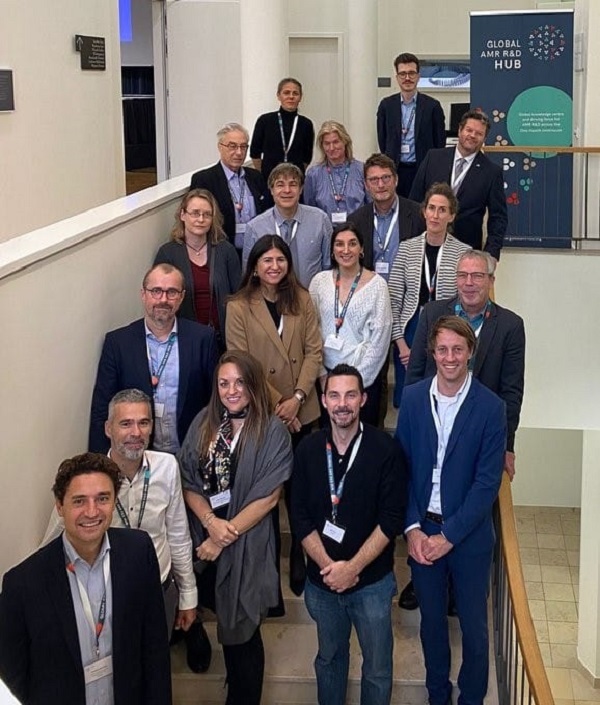This initiative to tackle the threat of resistant pathogens is designed to make the use of international resources even more effective. It should enable research scientists to develop more new antibiotics and treatments against infections.
There has been a significant increase in antimicrobial resistance (AMR) in the last few decades making it a major threat to global health. The Global Antimicrobial Resistance Research and Development Hub – or Global AMR R&D Hub for short – is designed to tackle this trend. The Hub was launched in 2018 and aims to further improve the coordination of international efforts and initiatives to tackle AMR while further increasing investments into R&D for AMR. In order to promote the development of more new drugs and treatments against resistant pathogens, resources need to be employed even more effectively than at present.

Global AMR R&D Hub Annual Meeting 2022
The German Federal Government has taken the lead in driving the establishment of the Global AMR R&D Hub: Under Germany´s presidency in 2017, the G20 heads of state and government took the decision to intensify global collaboration in the fight against AMR. The Federal Ministry of Education and Research (BMBF) then proposed plans for the Global AMR R&D Hub and supported its establishment. The secretariat of the Global AMR R&D Hub is based in Berlin, at the German Center for Infection Research (DZIF).
New antibiotics are urgently needed to protect the health of people around the world and save lives. The inappropriate use of antibiotics has resulted in more and more bacterial strains developing resistance in the last few decades – with fatal consequences: According to World Health Organization estimates, globally approximately 1,3 million people die each year as a direct result off antibiotic-restant bacterial infections. Without effective changes, this number could grow to ten million by 2050 ("Review on Antimicrobial Resistance")
Public funding is required to fight resistant pathogens
The research and development of new effective drugs against AMR, particularly of antibiotics, are highly challenging and provide little economic incentives for pharmaceutical companies. The result is that no groundbreaking new antibiotic has been brought onto the market in the last thirty years. And currently there is little sign of innovative breakthroughs in the pipeline. Public research funding therefore has a particular responsibility to help combat antimicrobial resistance. It must ensure that urgently needed research takes place, particularly in a field where only very limited returns on investments can be expected.
The members of the initiative – including countries like China, the United States and France, the European Commission, and funding organizations such as the Bill and Melinda Gates Foundation and the Wellcome Trust – confer on a regular basis. They identify important research and development tasks and jointly coordinate how to utilize their resources. The aim is to provide more effective funding for research and development of new treatments and diagnostics against resistant pathogens.
Interested countries and relevant non-governmental donor organizations can become members of the Global AMR R&D Hub. Other stakeholders are encouraged to participate by contributing their specific expertise. The Global AMR R&D Hub networks with other international initiatives in order to utilize synergies, including for example the European “Joint Programming Initiative on AMR” (JPIAMR) and the “Global Antibiotic Research & Development Partnership” (GARDP).
“One Health” approach against antimicrobial resistance
The work of the Global AMR R&D Hub is aligned with the priorities set by the World Health Organization (WHO), the Food and Agriculture Organization of the United Nations (FAO), the World Organisation for Animal Health (WOAH) and the United Nations Environment Programme (UNEP) (“Quadripartite”). The Global AMR R&D Hub is using the “One Health” approach whereby human and animal health, environmental health and other relevant disciplines and sectors are all considered as an interconnected whole.